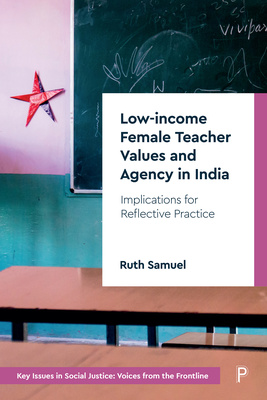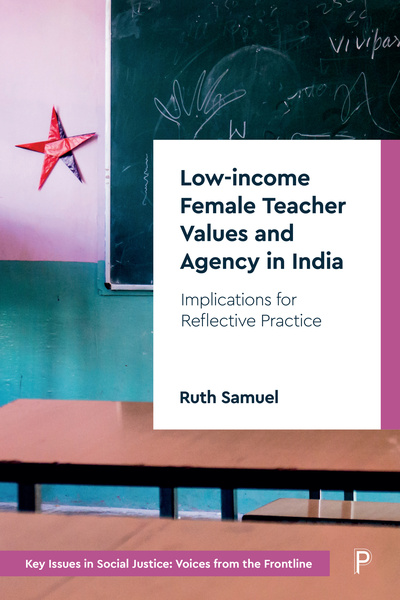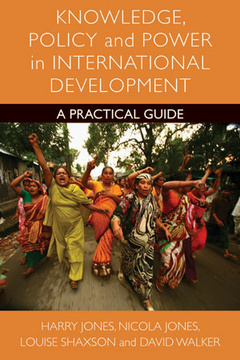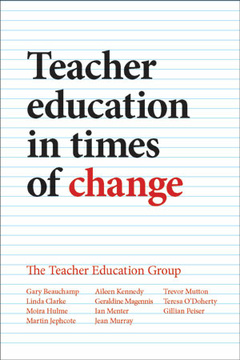Low-income Female Teacher Values and Agency in India
Implications for Reflective Practice
By Ruth Samuel
ISBN
978-1447360988Dimensions
234 x 156 mmImprint
Policy PressISBN
978-1447360971Dimensions
234 x 156 mmImprint
Policy PressISBN
978-1447360995Imprint
Policy PressISBN
978-1447360995Imprint
Policy PressEducation in India concentrates on exam performance and consequently the teacher in India often acts as a disseminator of textbook material, as well as maintaining class discipline and respect. This book explores low-income female teachers' speech and syntax as a crucial resource in which agency, freedom and empowerment is enacted within a strong oral tradition in India.
The book demonstrates how this socially and economically marginalised group overcome prejudices to develop relational agency and embed their authority. It shows how they establish their values and why their beliefs shape attitudes to aspiration, achievement and freedom of choice. It concludes with recommendations for policy and improvements to reflective practice in teaching.
“This book fills a gap about the lived experiences of low-income female teachers in India. It draws on a unique methodology to explore the voice and agency of individual teachers and helps drive the agenda of social justice education.” Camille Kandiko Howson, Imperial College London
"Teachers are critical enablers of students' learning, which is the primary purpose of education. Samuel's in-depth analysis of how a group of teachers negotiate and control space in the classroom certainly expands our understanding of the teacher workforce in India. This carefully researched and creatively written book will inform the country's efforts at empowering teachers to enhance learning in the classroom." Prema Clarke, independent scholar
Ruth Samuel is Lecturer in Academic Practice within the Academic Practice and Education Excellence Team at Cranfield University. She is also a consultant for a private university in India.
Introduction
1. Positioning female teachers in the context of India
2. Teachers' perceptions of their roles
3. Teachers' perspectives on navigating social spaces
4. Teachers' attitudes to transformation
5. Conclusion














